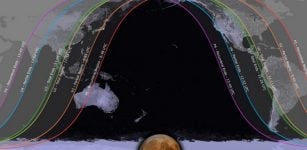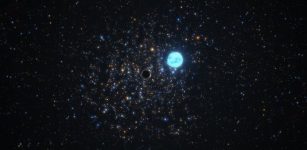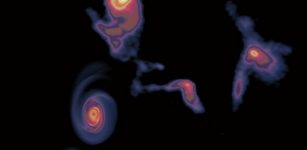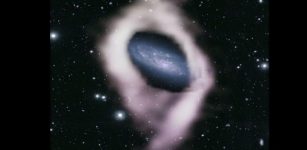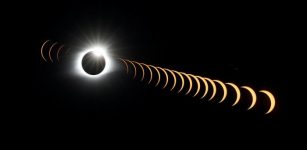Blue, Neptune-Sized Exoplanet Around A Red Dwarf Star Only 100 Light Years Away From Us
MessageToEagle.com – Astronomers used the LCOGT (Las Cumbres Observatory Global Telescope network) to detect light scattered by tiny particles (called Rayleigh scattering), through the atmosphere of an exoplanet, called GJ 3470b, located only 100 light years away from us.
At four times the size of the Earth, GJ 3470b is a Neptune-size transiting exoplanet, closer in size to our own planet than to the hot Jupiters (about 10 times the size of the Earth) which so far make up the majority of exoplanets with well-characterized atmospheres.
The planet GJ 3470b is the smallest exoplanet for which a detection of Rayleigh scattering exists.
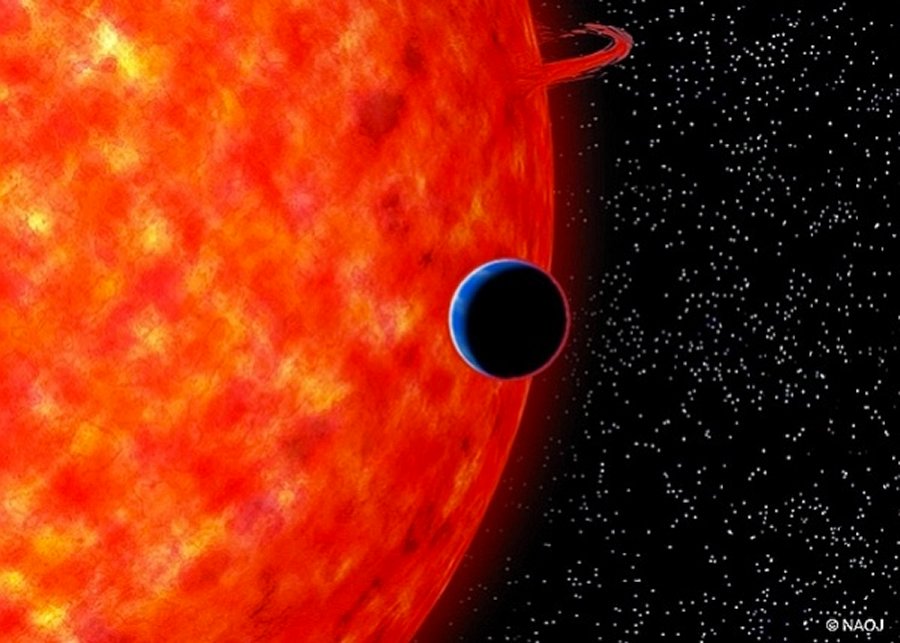
Astronomers believe that GJ 3470b is cloudy or hazy and has a thick hydrogen/helium-rich atmosphere below a layer of haze, which scatters blue light.
We also have blue sky, but this exoplanet does not resemble the planet Earth; it has not our earthly atmosphere.
The planet orbits around its star every three Earth days and this star is a small red dwarf, half the mass of the Sun and the star’s surface temperature is approximately 3,300 degree Celsius (6,000 degree F).
Close proximity of GJ 3470b to its star, makes it very hot , thus the planet is referred to as a warm-Neptune.
“This detection brings us closer to understanding the nature of increasingly smaller exoplanets through the use of a novel approach which allows us to probe the atmospheres of exoplanets even if they are cloudy,” Dr Diana Dragomir of the University of Chicago and lead author of the research, said.
The study is the first high-confidence detection of an exoplanet atmosphere features using observations taken with only 1 meter (3.3 foot) and 2 meter (6.6 foot) telescopes, highlighting the importance of meter-class astronomy in increasing our understanding of the universe.
The result was published in the Astrophysical Journal on November 20 and is available on ArXiV.
MessageToEagle.com
source:

